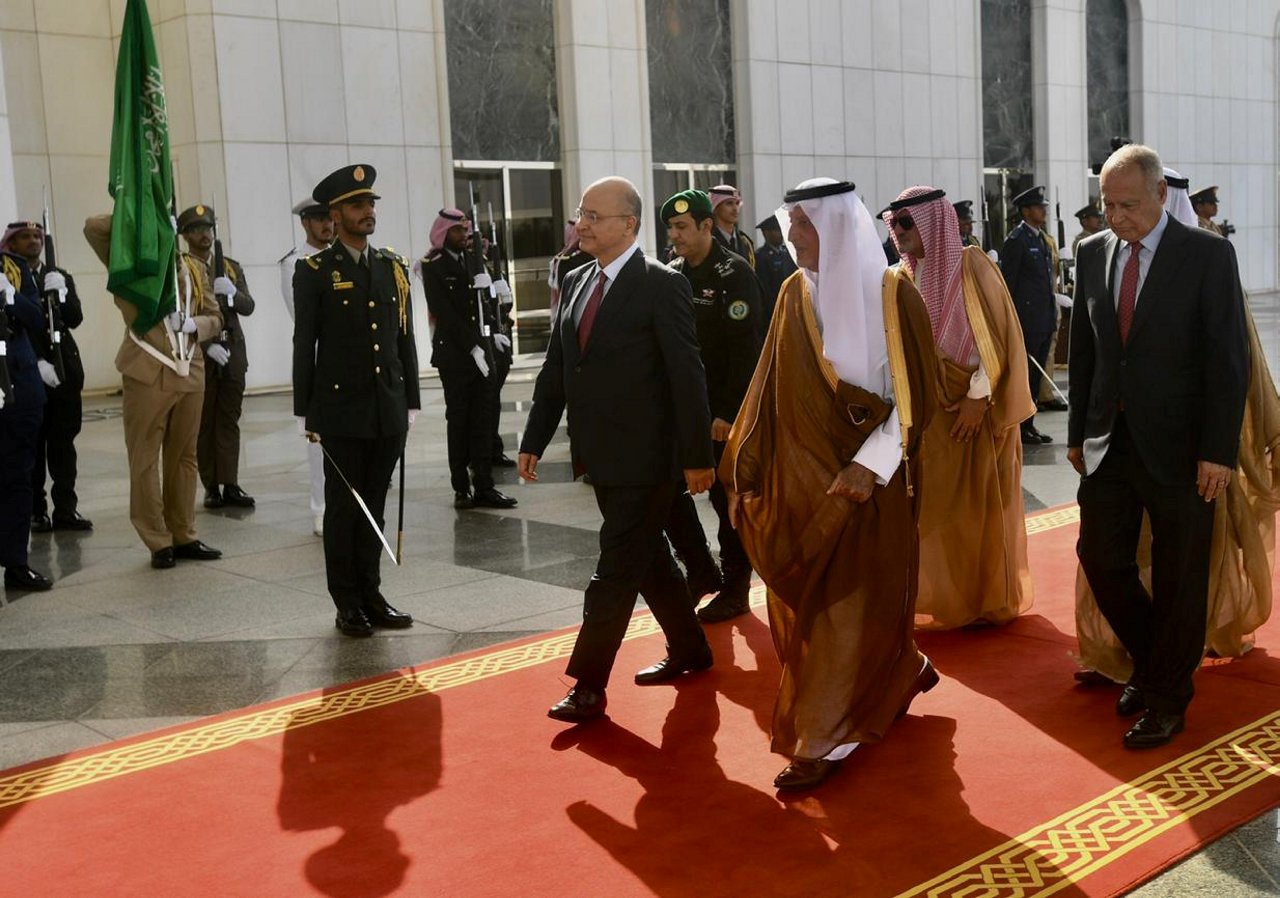
By Babak Dehghanpisheh and Sylvia Westall
GENEVA/DUBAI (Reuters) – U.S. President Donald Trump said he was prepared to take military action to stop Tehran having a nuclear bomb but left open whether he would sanction the use of force to protect Gulf oil supplies.
Fears of a confrontation between Iran and the United States have mounted since Washington blamed long-time foe Iran for Thursday’s attacks on two oil tankers near the strategic Strait of Hormuz shipping lane.
Tehran denies responsibility but the incidents, and similar attacks in May, have further soured relations that have plummeted since Trump pulled the United States out of a landmark international nuclear deal with Iran in May of last year.
Since exiting the accord, which gave Iran sanctions relief in return for curbs on its nuclear program, Trump has restored and extended U.S. sanctions. That has forced countries around the world to boycott Iranian oil or face sanctions of their own.
But in an interview with Time magazine, Trump, striking a different tone from some Republican lawmakers who have urged a military approach to Iran, said last week’s tanker attacks in the Gulf of Oman had had only a “very minor” impact so far.
Asked if he would consider military action to prevent Iran from obtaining nuclear weapons or to ensure the free flow of oil through the Gulf, Trump said:
“I would certainly go over nuclear weapons, and I would keep the other a question mark.”
The 2015 nuclear deal with Iran aimed to head off any pathway to an Iranian nuclear bomb but Trump says the deal failed to address Iran’s missile program or punish it for waging proxy wars in Middle East countries.
Tehran has decried the toughening of U.S. sanctions and urged other signatories to take action to save the nuclear pact or see Iran turn its back on the deal.
CALLS FOR RESTRAINT
Iran said on Monday it would soon breach limits on how much-enriched uranium it can stockpile under a 2015 nuclear deal, which had sought to limit its nuclear capabilities.
Exceeding the uranium cap at the heart of the accord could prompt a diplomatic crisis, forcing the other signatories, which include China, Russia and European powers, to confront Iran.
The White House National Security Council condemned the statement as “nuclear blackmail” while Russia and China, two other signatories of the accord, on Tuesday urged restraint.
Russia told the United States it should drop what it called provocative plans to deploy more troops to the Middle East and cease actions that looked like a conscious attempt to provoke war with Iran, and urged restraint on all sides.
“What we see are unending and sustained U.S. attempts to crank up political, psychological, economic and yes military pressure on Iran in quite a provocative way,” Deputy Foreign Minister Sergei Ryabkov was cited as saying by Russian media.
“They (these actions) cannot be assessed as anything but a conscious course to provoke war,” he said.
China’s top diplomat Wang Yi warned the world should not open a “Pandora’s Box” in the Middle East, as he denounced U.S. pressure on Iran and urged Tehran to heed the deal.
Chancellor Angela Merkel said Germany, another signatory, was doing all it could to ease tensions with Iran but said Iran must abide by the 2015 deal.
IRAN DEFIANT
Acting U.S. Defense Secretary Patrick Shanahan on Monday announced the deployment of about 1,000 more troops to the Middle East for what he said were defensive purposes, citing concerns about a threat from Iran.
The deployment is in addition to a 1,500-troop increase announced last month in response to tanker attacks in May.
Iranian President Hassan Rouhani said in a speech that Iran did not seek war and dismissed U.S. efforts to isolate Iran.
“Iran will not wage war against any nation,” he said. “Despite all of the Americans’ efforts in the region and their desire to cut off our ties with all of the world and their desire to keep Iran secluded, they have been unsuccessful.”
Heightened Iran-U.S. tensions have stoked fears of increased violence in countries where Iran and its Gulf Arab regional rivals are locked in a sometimes bloody struggle for influence.
Saudi air defenses intercepted two drones fired by Yemen’s Iran-aligned Houthi group, Saudi media said on Tuesday. The group’s Al Masirah TV said the Houthis had sent drones to strike the airport of the Saudi city of Abha.
MILITARY BASE
Three rockets landed on a military base hosting U.S. forces north of Baghdad late on Monday, an Iraqi military statement said, without providing further details. There was no immediate claim of responsibility for the attack.
U.S. officials said last month there was an increased threat from Iran-backed militias against U.S. interests in Iraq, and the U.S. embassy in Baghdad evacuated hundreds of staff.
The United States is discussing options with its allies on how to protect international shipping in the Gulf of Oman following the recent attacks, two senior Trump administration officials said last week.
A senior Gulf official said Washington was considering establishing a military coalition, including other nations, to protect oil tankers.
“We hope they will implement this proposal soon,” said the official, who said he had been briefed by a U.S. official and had heard details from Gulf “partners”.
(Additional reporting by Alexander Cornwell in Dubai, Tom Balmforth and Maxim Rodionov in Moscow, Ben Blanchard in Beijing, Writing by William Maclean, Editing by Janet Lawrence and Jon Boyle)











